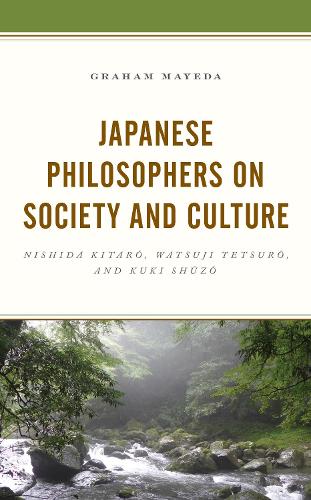
Japanese Philosophers on Society and Culture: Nishida Kitaro, Watsuji Tetsuro, and Kuki Shuzo
(Hardback)
Publishing Details
Japanese Philosophers on Society and Culture: Nishida Kitaro, Watsuji Tetsuro, and Kuki Shuzo
By (Author) Graham Mayeda
Bloomsbury Publishing PLC
Lexington Books
10th December 2020
United States
Classifications
Professional and Scholarly
Non Fiction
Asian history
Social and political philosophy
306.01
Physical Properties
Hardback
298
Width 160mm, Height 241mm, Spine 22mm
576g
Description
In every part of the world and in every era, philosophers have reflected on the meaning of culture and its philosophical significance. Japanese Philosophers on Society and Culture:Nishida Kitar, Watsuji Tetsur, and Kuki Shz explores how three of Japan's preeminent philosophers of the twentieth century, Nishida Kitar, Watsuji Tetsur and Kuki Shz, defined culture and analyzed what it tells us about social relations. Graham Mayeda also explores little-known aspects of the work of each philosopher, including a philosophical analysis of Watsuji's travel diary, Pilgrimages to the Ancient Temples in Nara, the place of intuition in Kuki's ethics of otherness, and the role of culture in realizing Nishida's concept of reality as the historical world. Each of the three philosophers discussed in this book adapted philosophical methodologies such as phenomenology, hermeneutics, and dialectical logic to studying the traditional sources of Japanese culture: Confucianism, Buddhism, Bushid and Shint. This book focuses on the way that Nishida, Watsuji and Kuki critiqued the methodologies that they adopted from European philosophy and modified them to inquire into the values that form the basis of their own cultural tradition. Finally, Mayeda engages with the problem of cultural essentialism by identifying the progressive and conservative elements of each philosopher's characterization of Japanese culture.
Author Bio
Graham Mayeda is associate professor of law at the University of Ottawa.
